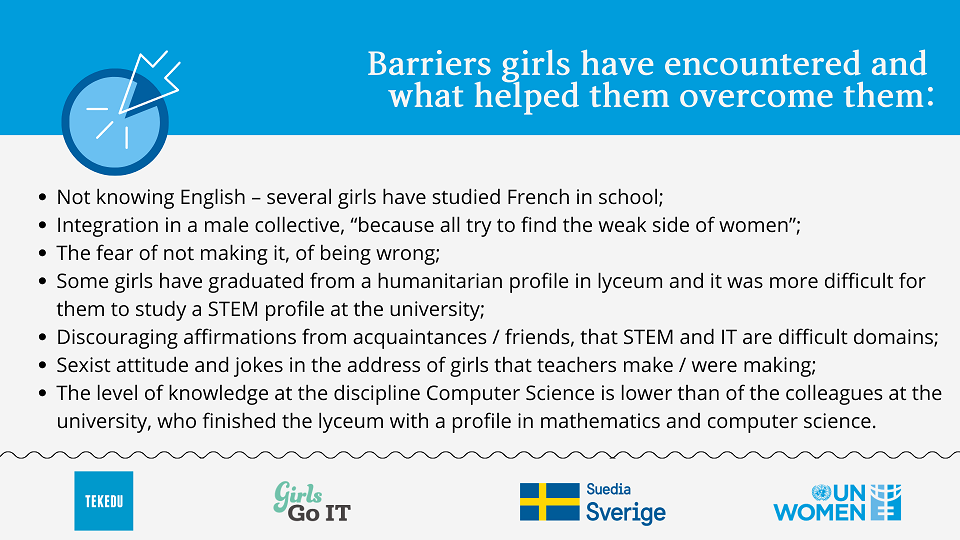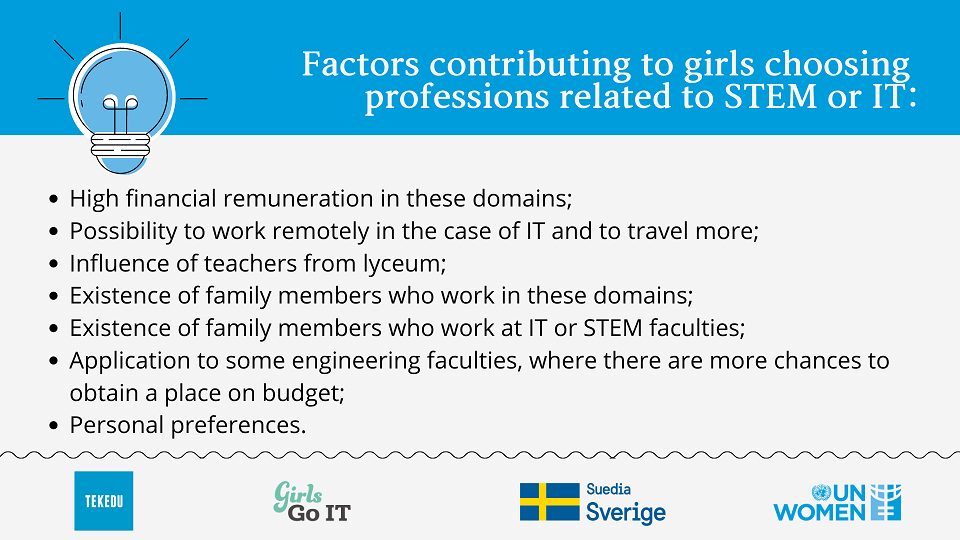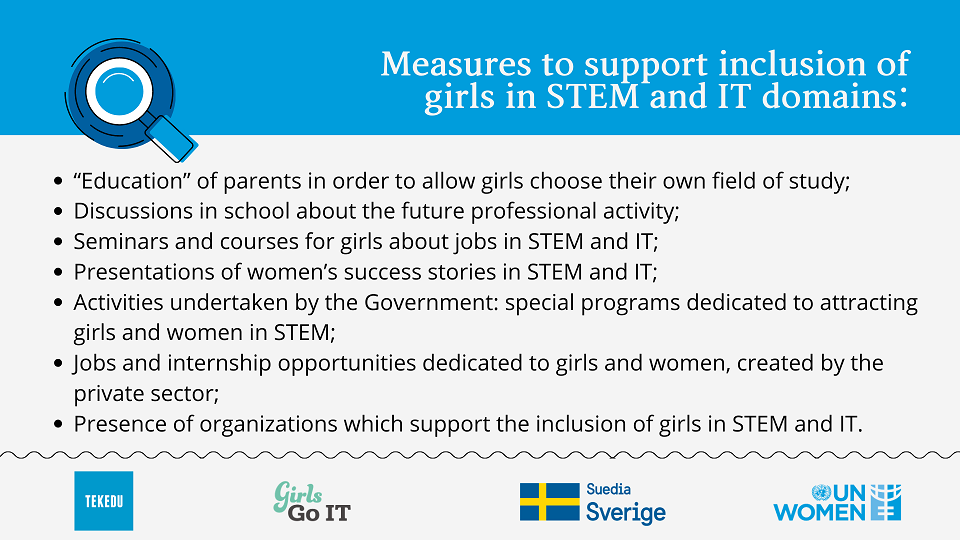Motivations and barriers for girls and women in STEM and ICT domains
In the Republic of Moldova, in the Information and Communication Technology sector (ICT), girls and women are underrepresented on the workforce market. They occupy 31% of the jobs in the sector and 19% of digital professions. Gender inequities on the workforce market in the ICT sector are obvious, but declining. The share of women employed in the ICT sector in 2017 was about 31%, and their share has increased during the years 2014-2017 by 2 p.p., which shows that gender discrepancies in employment on the workforce market are declining.Date:
In order to better understand which are the barriers and main factors that contribute to the fact that girls and women take decisions in favor of STEM and ICT professions, a survey was conducted by the company Magenta Consulting on the request of UN Women and with the financial support from Sweden. In the ”Motivations and barriers for girls and women in STEM and ICT domains” study were analyzed existing statistical data and was carried out a survey among 362 girls aged 14-18 from 5 administrative-territorial units: Balti municipality, Cahul, Calarasi, Causeni, Ungheni districts.

Both young women from the urban and those from the rural areas are interested in the domains: Beauty services (30%), Economics (27%), Tourism and hotel services (26%) and Education (24%). At the same time, the young women are not interested at all in the following domains of activity: Physics and Electronics (81%), Geography and Geology (78%), Architecture and Engineering (74%), Mathematics (76%), Biology / Chemistry (69%), Information Technology (65%).
Among the participants in the interview, 38% knew since high school that they would study in the field of ICT, being inspired by computer science teachers or being passionate about computer science lessons at school. Others either chose spontaneously or submitted the documents for studies at a faculty where they thought they would have more chances for a place on budget.
The factors that influenced women and girls in choosing a professional career were more often represented by the opinion of family members, friends and teachers who encouraged them. Also, an important factor can be considered the favorable location of the educational institution in relation to the locality where the respondents live.

Dominika Stojanoska, Country Representative of UN Women Moldova, stated that: „The goal of the research is to identify positive practices and issues that require increased attention in the future, so that more girls and women in the Republic of Moldova pursue a career in ICT and STEM, sectors predominantly dominated by men."
The majority of male and female interviewees who work in IT companies say there is no discrimination of women who work in STEM domains, but there is just a stereotype in society, which is already diminishing.
At the same time, the majority of male and female participants in the study think that persons of an older age may consider that girls would not be able to cope in STEM. Some girls encountered discouraging affirmations from relatives or parents who considered that in STEM or IT “masculine thinking is needed”. At the same time, several respondents consider that for a woman it is more complicated to achieve fulfillment professionally because, besides the career, the woman needs to raise children.
The girls interviewed told that some of the barriers they faced were: the fear of failure, considering that they graduated a humanistic profile in high school; poor knowledge of English language; sexist attitudes and jokes towards them from colleagues or university teachers.

Women's access to income, through decent employment opportunities and social security, is a foundation for economic emancipation and gender equality. Access to personal income can help increase a woman's self-esteem and bargaining power in domestic and community settings, and can reduce the probability that they will be exposed or remain in abusive relationships.
This Survey was elaborated by Magenta Consulting for the Association for the Development of Information Technologies EDUCAT in partnership with the United Nations Entity for Gender Equality and Women’s Empowerment (UN Women) and financed by Sweden. The authors of the survey are Aurelia Bradețchi, Andrei Ciobanu, Dumitru Slonovschi.